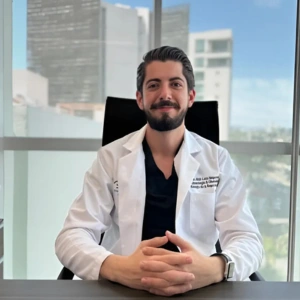
Aldo Loza Mapome
Mexican Institute of Infertility, MexicoPresentation Title:
In vitro fertilization outcomes comparing different stimulation protocols in patients with low ovarian reserve
Abstract
Objective: To compare the effectiveness of three ovarian stimulation protocols in patients with diminished ovarian reserve undergoing in vitro fertilization (IVF) at our clinic in Mexico.
Materials and Methods: A total of 30 patients with diminished ovarian reserve were enrolled and divided into three groups: Group 1 received follitropin delta plus menotropins; Group 2 received follitropin alfa plus menotropins; and Group 3 received a combination of follitropin alfa and lutropin alfa. All patients underwent a GnRH antagonist protocol with follicular-phase stimulation. Final oocyte maturation was triggered using a dual trigger. Statistical analysis was performed using ANOVA in Microsoft Excel.
Results: The mean ages in Groups 1, 2, and 3 were 38.7, 38.3, and 40.4 years, respectively. Mean BMI values were 31.2, 27.1, and 27.8. The average number of oocytes retrieved per group was 5.2, 5.3, and 7.1. No statistically significant differences were observed among groups in Anti-Müllerian Hormone (AMH) levels (p = 0.20), BMI (p = 0.30), total number of oocytes retrieved (p = 0.49), number of mature oocytes (p = 0.53), or duration of stimulation (p = 0.28). Oocyte maturation rates were comparable across the groups: 79.7%, 78.7%, and 72.9%, respectively.
Conclusion: Among patients with diminished ovarian reserve, no statistically significant differences were observed in ovarian response between the three stimulation protocols studied, in terms of total oocytes retrieved, number of mature oocytes, or oocyte maturation rates.
Biography
Aldo Loza Mapome completed his medical degree, specialization in Gynecology and Obstetrics, and further training in Human Reproductive Endocrinology and infertility in Mexico. He earned his qualifications from the Universidad Autónoma de Guadalajara and the Universidad de Guadalajara. He completed an advanced assisted reproduction course accredited by IVI in Valencia, Spain, as well as a Master’s program in Medical English at Tech University in Spain. He has authored and co-authored several publications in national journals focused on reproductive medicine and low responders patients and low ovarian reserve patients. His most recent article, published this year in an international journal, is titled “State of the Art in Uterus Transplantation and Its Situation in Mexico”. He also holds certifications in advanced laparoscopic surgery and robotic surgery, completed in Oxnard, California. Currently, he practices as a physician at the Instituto Mexicano de Infertilidad, a fertility clinic based in Guadalajara, and is an active member of the Mexican Society for Reproductive Medicine.


